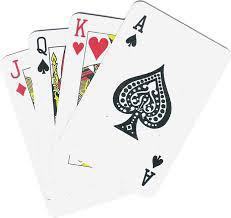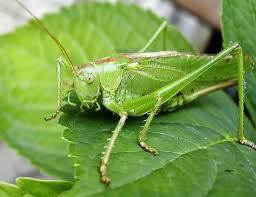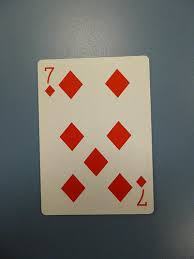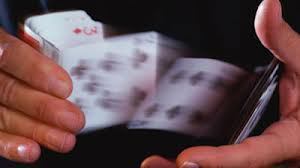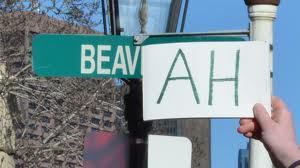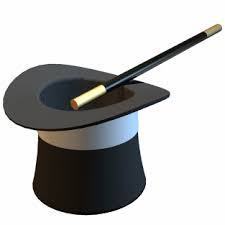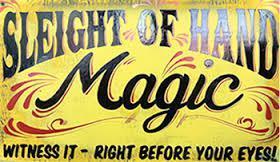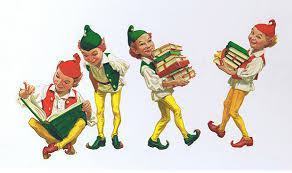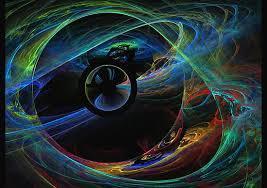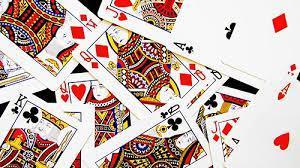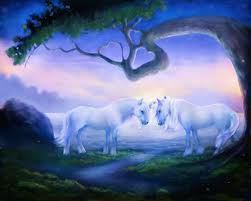It’s Magic!
“Pick a card, any card,” he said, and winked.
I went for the top card on the deck, but pulled my hand back. That would be too easy.
“Crafty,” he said, smiling. I shrugged. I was twelve years old, and this was the first time I’d ever met him. “Cousin Ed,” we called him. He was actually my grandmother’s cousin–I wasn’t even sure what that made him to me. I just knew he was fun, lived in Boston and spoke with an accent so thick you could hear the chowder coating each syllable, and loved to perform card tricks.
“C’mon, Mike,” my oldest brother said. The entire family was gathered around the table. It was a warm, humid evening in late July, the windows opened, the metallic hum of the cicadas and the steady, thrumming chorus of the crickets filtering in. “Will you pick a card already? Geez! This isn’t exactly rocket science here.”
Cousin Ed laughed out loud at this and tapped on the deck. “Listen to your brother,” he said.
I picked a card near the bottom of the deck.
“Okay, now show everyone here your card,” Ed said, “except for me, of course.” My mother and father, brothers and sister moved in close as I showed them the card. It was the seven of diamonds. It’s funny–the things you remember through the years. I have forgotten so many things–countless details that have evaporated from my conscious memory like smoke on an autumn wind. But I remember the seven of diamonds . . .
Ed held out the deck, cutting it in two and shielding his eyes for effect. “Kindly put the card back,” he said.
I did, and faster than the eye could follow, he slapped the deck back together and began to shuffle. He shuffled like no one I had ever seen, his hands a blur, his fingers maneuvering, redirecting, reconfiguring. We all knew we were in the presence of a master of his craft. He made the hyper-speed shuffling look easy.
This went on for over a minute. And then, finally, Cousin Ed placed the deck, facedown, on the table and tapped the top card.
“Turn the top card over if you would, my good man,” he said. But it wasn’t the card I had chosen. “Darn!” Ed said. “Guess I must’ve tapped the deck too hard.” “Hard” came out “hahd,” the “r” silent, the chowder sticking to the word, rich and thick like paste.
He tapped the deck again, then turned it over, revealing the bottom card. “Now I know that must your card,” he said.
I shook my head, and my sister snickered behind me.
“Hmm.” Ed rubbed his chin, then fanned the deck, face-up, along the surface of the table. He rubbed his chin harder, thinking, frowning, and then reached for the seven of diamonds. He said nothing as he held up the card; he just smiled. The smile said it all.
“How . . . ?” my brother said.
Ed bowed, smiled wider. “It’s magic,” he said.
Later, I had a moment with Cousin Ed alone. I asked him, point blank–how had he done it?
He told me it was all in the sleight of hand, the art of shuffling, the showmanship and banter, and, most important of all, making the audience’s eyes follow where he wanted them to go. “It’s not much of a trick, once you know the secret,” he admitted. “That’s how tricks are. It’s the not knowing that makes them magic.”
I didn’t want to hear that, and again urged him to show me how he’d done it.
“Aw, why not?” he said. “Not sure when I’ll be out here visiting again. But I’m tellin’ ya, you’re gonna be disappointed . . .”
And when he was through, when the dense morning fog had rolled out to sea, replaced by the clear, bright light of day, I realized he’d been right.
The trick had lost its luster.
The magic was gone.
*************************
There are many details authors must account for in a single novel. Events that occur in chapter two reverberate throughout the story and affect the goings-on in chapter twenty-six. Characters grow and evolve. Twists and turns arise, unexpectedly, sprinkled in as if by mischievous literary elves intent on leaving their pixie footprint on every page.
And sometimes, especially in science fiction and fantasy–but by no means limited to speculative fiction–the unexplainable happens. Time warps occur. A series of deja vu moments takes place for the protagonist that somehow seem connected–but to what? And when? And where? Or, as the case may be, mysterious little “ghost girls” with swirling blue eyes haunt the dreams of seventh-grade boys and open portals to other, distant dimensions.
Much to Marc Kuslanski‘s chagrin, the endless blue void in The Eye-Dancers; the strange psychic connection the boys share with Monica Tisdale, the “ghost girl”; and the extent and methods of her paranormal abilities are never explained. They are hinted at, lived through, coped with . . . but never explained.
I debated this as I wrote the novel. Should a coherent, logical (or perhaps even pseudo-logical) bow tie of an explanation be given? Should the unexplainable, in fact, be explained? What would be gained if it were? What would be lost?
There was a moment during the writing process when I thought back to old Cousin Ed and his card trick, the way I had felt, like a pin-pricked balloon, when he shared the secret with me. And I knew the approach I needed to take.
Granted, Marc, always the scientist at heart, tries to explain everything that happens, using quantum theory as the bedrock of his analysis. But the novel never fully confirms, or refutes, his conclusions. Perhaps some of them are correct. And perhaps others are 100% wrong.
It is left for the reader to decide.
******************
After Cousin Ed returned to Boston, I was determined to learn how to shuffle like a pro so I could perform his card trick when school opened in the fall. I spent hours that summer practicing, and on the first day back to class, I made sure to bring a deck of cards with me.
At lunch, with several students watching, I whipped out the deck, asked for someone to pick a card. Any card.
When it was over, I had achieved the desired end result. I wasn’t nearly as skilled as Ed, but the performance was good enough to mystify and confound. My friends asked, “Hey, how’d you do that?”
I shrugged, smiled.
“It’s magic,” I said.
And no matter how many times they asked, I never did reveal the secret.
Thanks so much for reading!
–Mike



